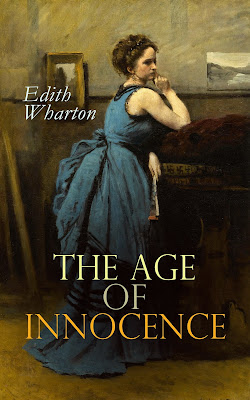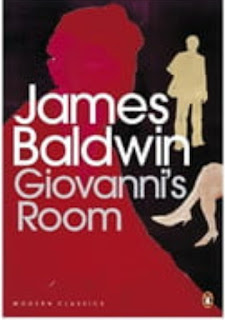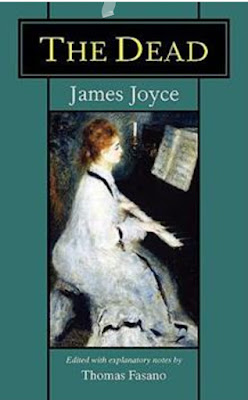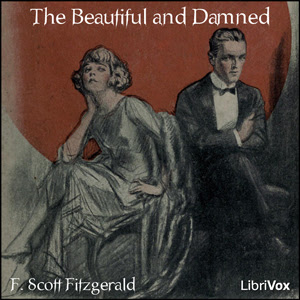A Journey by Cart
by Anton Chekhov
3,635 Words
THEY left the city at half past eight.
The highway was dry and a splendid April sun was beating fiercely down, but the snow still lay in the woods and wayside ditches. The long, dark, cruel winter was only just over, spring had come in a breath, but to Maria Vasilievna driving along the road in a cart there was nothing either new or attractive in the warmth, or the listless, misty woods flushed with the first heat of spring, or in the flocks of crows flying far away across the wide, flooded meadows, or in the marvellous, unfathomable sky into which one felt one could sail away with such infinite pleasure. Maria Vasilievna had been a school teacher for thirty years, and it would have been impossible for her to count the number of times she had driven to town for her salary, and returned home as she was doing now. It mattered not to her whether the season were spring, as now, or winter, or autumn with darkness and rain; she invariably longed for one thing and one thing only: a speedy end to her journey.
She felt as if she had lived in this part of the world for a long, long time, even a hundred years or more, and it seemed to her that she knew every stone and every tree along the roadside between her school and the city. Here lay her past and her present as well, and she could not conceive of a future beyond her school and the road and the city, and then the road and her school again, and then once more the road and the city.
Of her past before she had been a school teacher she had long since ceased to think—she had almost forgotten it. She had had a father and mother once, and had lived with them in a large apartment near the Red Gate in Moscow, but her recollection of that life was as vague and shadowy as a dream. Her father had died when she was ten years old, and her mother had soon followed him. She had had a brother, an officer, with whom she had corresponded at first, but he had lost the habit of writing to her after a while, and had stopped answering her letters. Of her former belongings her mother's photograph was now her only possession, and this had been so faded by the dampness of the school that her mother's features had all disappeared except the eyebrows and hair.
When they had gone three miles on their way old daddy Simon, who was driving the cart, turned round and said:
"They have caught one of the town officials and have shipped him away. They say he killed the mayor of Moscow with the help of some Germans."
"Who told you that?"
"Ivan Ionoff read it in the paper at the inn."
For a long time neither spoke. Maria Vasilievna was thinking of her school, and the coming examinations for which she was preparing four boys and one girl. And just as her mind was full of these examinations, a landholder named Khanoff drove up with a four-in-hand harnessed to an open carriage. It was he who had held the examination in her school the year before. As he drove up alongside her cart he recognised her, bowed, and exclaimed:
"Good morning ! Are you on your way home, may I ask?"
Khanoff was a man of forty or thereabouts. His expression was listless and blase, and he had already begun to age perceptibly, but he was handsome still and admired by women. He lived alone on a large estate; he had no business anywhere, and it was said of him that he never did anything at home but walk about and whistle, or else play chess with his old man servant. It was also rumoured that he was a hard drinker. Maria Vasilievna remembered that, as a matter of fact, at the last examination even the papers that he had brought with him had smelled of scent and wine. Everything he had had on that day had been new, and Maria Vasilievna had liked him very much, and had even felt shy sitting there beside him. She was used to receiving the visits of cold, critical examiners, but this one did not remember a single prayer, and did not know what questions he ought to ask. He had been extremely considerate and polite, and had given all the children full marks for everything.
"I am on my way to visit Bakvist" he now continued to Maria Vasilievna. "Is it true that he is away from home?"
They turned from the highway into a lane, Khanoff in the lead, Simon following him. The four horses proceeded at a foot-pace, straining to drag the heavy carriage through the mud. Simon tacked hither and thither across the road, first driving round a bump, then round a puddle, and jumping down from his seat every minute or so to give his horse a helpful push. Maria Vasilievna continued to think about the school, and whether the questions at the examinations would be difficult or easy. She felt annoyed with the board of the zemstvo, for she had been there yesterday, and had found no one in. How badly it was managed ! Here it was two years since she had been asking to have the school watchman discharged for loafing and being rude to her and beating her scholars, and yet no one had paid any heed to her request. The president of the board was hardly ever in his office, and when he was, would vow with tears in his eyes that he hadn't time to attend to her now. The school inspector came only three times a year, and knew nothing about his business anyway, as he had formerly been an excise-man, and had obtained the office of inspector through favour. The school board seldom met, and no one ever knew where their meetings were held. The warden was an illiterate peasant who owned a tannery, a rough and stupid man and a close friend of the watchman's. In fact, the Lord only knew whom one could turn to to have complaints remedied and wrongs put right !
"He really is handsome!" thought the schoolteacher glancing at Khanoff.
The road grew worse and worse. They entered a wood. There was no possibility of turning out of the track here, the ruts were deep and full of gurgling, running water. Prickly twigs beat against their faces.
"What a road, eh?" cried Khanoff laughing.
The school teacher looked at him and marvelled that this queer fellow should be living here.
"What good do his wealth, his handsome face, and his fine culture, in this God-forsaken mud and solitude?" she thought. "He has abandoned any advantage that fate may have given him, and is enduring the same hardships as Simon, tramping with him along this impossible road. Why does any one live here who could live in St. Petersburg or abroad ? "
And it seemed to her that it would be worth this rich man's while to make a good road out of this bad one, so that he might not have to struggle with the mud, and be forced to see the despair written on the faces of Simon and his coachman. But he only laughed, and was obviously absolutely indifferent to it all, asking for no better life than this.
"He is kind and gentle and unsophisticated," Maria Vasilievna thought again. "He does not understand the hardships of life any more than he knows the suitable prayers to say at the examination. He gives globes to the school and sincerely thinks himself a useful man and a conspicuous benefactor of popular education. Much they need his globes in this wilderness ! "
"Sit tight, Vasilievna!" shouted Simon.
The cart tipped violently to one side and seemed to be falling over. Something heavy rolled down on Maria Vasilievna's feet, it proved to be the purchases she had made in the city. They were crawling up a steep, clayey hill now. Torrents of water were rushing noisily down on either side of the track, and seemed to have eaten away the road bed. Surely it would be impossible to get by! The horses began to snort. Khanoff jumped out of his carriage and walked along the edge of the road in his long overcoat. He felt hot.
"What a road!" he laughed again. "My carriage will soon be smashed to bits at this rate !"
"And who asked you to go driving in weather like this?" asked Simon sternly. "Why don't you stay at home?"
"It is tiresome staying at home, daddy. I don't like it."
He looked gallant and tall walking beside old Simon, but in spite of his grace there was an almost imperceptible something about his walk that betrayed a being already rotten at the core, weak, and nearing his downfall. And the air in the woods suddenly seemed to carry an odour of wine. Maria Vasilievna shuddered, and began to feel sorry for this man who for some unknown reason was going to his ruin. She thought that if she were his wife or his sister she would gladly give up her whole life to rescuing him from disaster. His wife ? Alas ! He lived alone on his great estate, and she lived alone in a forlorn little village, and yet the very idea that they might one day become intimate and equal seemed to her impossible and absurd. Life was like that ! And, at bottom, all human relationships and all life were so incomprehensible that if you thought about them at all dread would overwhelm you and your heart would stop beating.
"And how incomprehensible it is, too," she thought, "that God should give such beauty and charm and such kind, melancholy eyes to weak, unhappy, useless people, and make every one like them so !"
"I turn off to the right here," Khanoff said, getting into his carriage. "Farewell! A pleasant journey to you!"
And once more Maria Vasilievna's thoughts turned to her scholars, and the coming examinations, and the watchman, and the school board, until a gust of wind from the right bringing her the rumbling of the departing carriage, other reveries mingled with these thoughts, and she longed to dream of handsome eyes and love and the happiness that would never be hers.
She, a wife ! Alas, how cold her little room was early in the morning ! No one ever lit her stove, because the watchman was always away somewhere. Her pupils came at daybreak, with a great noise, bringing in with them mud and snow, and everything was so bleak and so uncomfortable in her little quarters of one small bedroom which also served as a kitchen ! Her head ached every day when school was over. She was obliged to collect money from her scholars to buy wood and pay the watchman, and then to give it to that fat, insolent peasant, the warden, and beg him for mercy's sake to send her a load of wood. And at night she would dream of examinations and peasants and snow drifts. This life had aged and hardened her, and she had grown plain and angular and awkward, as if lead had been emptied into her veins. She was afraid of everything, and never dared to sit down in the presence of the warden or a member of the school board. If she mentioned any one of them in his absence, she always spoke of him respectfully as "his Honour." No one found her attractive; her life was spent without love, without friendship, without acquaintances who interested her. What a terrible calamity it would be were she, in her situation, to fall in love !
"Sit tight, Vasilievna!"
Once more they were crawling up a steep hill.
She had felt no call to be a teacher; want had forced her to be one. She never thought about her mission in life or the value of education; the most important things to her were, not her scholars nor their instruction, but the examinations. And how could she think of a mission, and of the value of education? School teachers, and poor doctors, and apothecaries, struggling with their heavy labours, have not even the consolation of thinking that they are advancing an ideal, and helping mankind. Their heads are too full of thoughts of their daily crust of bread, their wood, the bad roads, and their sicknesses for that. Their life is tedious and hard. Only those stand it for any length of time who are silent beasts of burden, like Maria Vasilievna. Those who are sensitive and impetuous and nervous, and who talk of their mission in life and of advancing a great ideal, soon become exhausted and give up the fight.
To find a dryer, shorter road, Simon sometimes struck across a meadow or drove through a back-yard, but in some places the peasants would not let him pass, in others the land belonged to a priest; here the road was blocked, there Ivan Ionoff had bought a piece of land from his master and surrounded it with a ditch. In such cases they had to turn back.
They arrived at Nijni Gorodishe. In the snowy, grimy yard around the tavern stood rows of wagons laden with huge flasks of oil of vitriol. A great crowd of carriers had assembled in the tavern, and the air reeked of vodka, tobacco, and sheepskin coats. Loud talk filled the room, and the door with its weight and pulley banged incessantly. In the tap room behind a partition some one was playing on the concertina without a moment's pause. Maria Vasilievna sat down to her tea, while at a near-by table a group of peasants saturated with tea and the heat of the room were drinking vodka and beer.
A confused babel filled the room.
"Did you hear that, Kuzma? Ha! Ha! What's that ? By God ! Ivan Dementitch, you'll catch it for that! Look, brother ! "
A small, black-bearded, pock-marked peasant, who had been drunk for a long time, gave an exclamation of surprise and swore an ugly oath.
"What do you mean by swearing, you!" shouted Simon angrily from where he sat, far away at the other end of the room. "Can't you see there's a lady here?"
"A lady!" mocked some one from another corner.
"You pig, you!"
"I didn't mean to do it—" faltered the little peasant with embarrassment. "Excuse me ! My money is as good here as hers. How do you do?"
"How do you do?" answered the school teacher.
"Very well, thank you kindly."
Maria Vasilievna enjoyed her tea, and grew as flushed as the peasants. Her thoughts were once more running on the watchman and the wood.
"Look there, brother!" she heard a voice at the next table cry. "There's the schoolmarm from Viasovia ! I know her ! She's a nice lady."
"Yes, she's a nice lady."
The door banged, men came and went. Maria Vasilievna sat absorbed in the same thoughts that had occupied her before, and the concertina behind the partition never ceased making music for an instant. Patches of sunlight that had lain on the floor when she had come in had moved up to the counter, then to the walls, and now had finally disappeared. So it was afternoon. The carriers at the table next to hers rose and prepared to leave. The little peasant went up to Maria Vasilievna swaying slightly, and held out his hand. The others followed him; all shook hands with the school teacher, and went out one by one. The door banged and whined nine times.
"Get ready, Vasilievna!" Simon cried.
They started again, still at a walk.
"A little school was built here in Nijni Gorodishe, not long ago," said Simon, looking back. "Some of the people sinned greatly."
"In what way?"
"It seems the president of the school board grabbed one thousand roubles, and the warden another thousand, and the teacher five hundred."
"A school always costs several thousand roubles. It is very wrong to repeat scandal, daddy. What you have just told me is nonsense."
"I don't know anything about it. I only tell you what people say."
It was clear, however, that Simon did not believe the school teacher. None of the peasants believed her. They all thought that her salary was too large (she got twenty roubles a month, and they thought that five would have been plenty), and they also believed that most of the money which she collected from the children for wood she pocketed herself. The warden thought as all the other peasants did, and made a little out of the wood himself, besides receiving secret pay from the peasants unknown to the authorities.
But now, thank goodness, they had finally passed through the last of the woods, and from here on their road would be through flat fields all the way to Viasovia. Only a few miles more to go, and then they would cross the river, and then the railway track, and then they would be at home.
"Where are you going, Simon?" asked Maria Vasilievna. "Take the right-hand road across the bridge !"
"What's that? We can cross here. It isn't very deep."
"Don't let the horse drown!"
"What's that?"
"There is Khanoff crossing the bridge !" cried Maria Vasilievna, catching sight of a carriage and four in the distance at their right. "Isn't that he?"
"That's him all right. He must have found Bakvist away. My goodness, what a donkey to drive all the way round when this road is two miles shorter ! "
They plunged into the river. In summer time it was a tiny stream, in late spring it dwindled rapidly to a fordable river after the freshets, and by August it was generally dry, but during flood time it was a torrent of swift, cold, turbid water some fifty feet wide. Fresh wheel tracks were visible now on the bank leading down to the water's edge; some one, then, must have crossed here.
"Get up!" cried Simon, madly jerking the reins and flapping his arms like a pair of wings. "Get up !"
The horse waded into the stream up to his belly, stopped, and then plunged on again, throwing his whole weight into the collar. Maria Vasilievna felt a sharp wave of cold water lap her feet.
"Go on!" she cried, rising in her seat. "Go on!"
They drove out on the opposite bank.
"Well, of all things! My goodness!" muttered Simon. "What a worthless lot those zemstvo people are "
Maria Vasilievna's goloshes and shoes were full of water, and the bottom of her dress and coat and one of her sleeves were soaked and dripping. Her sugar and flour were wet through, and this was harder to bear than all the rest. In her despair she could only wave her arms, and cry:
"Oh, Simon, Simon! How stupid you are, really "
The gate was down when they reached the railway crossing, an express train was leaving the station. They stood and waited for the train to go by, and Maria Vasilievna shivered with cold from head to foot.
Viasovia was already in sight; there was the school with its green roof, and there stood the church with its blazing crosses reflecting the rays of the setting sun. The windows of the station were flashing, too, and a cloud of rosy steam was rising from the engine. Everything seemed to the school teacher to be shivering with cold.
At last the train appeared. Its windows were blazing like the crosses on the church, and their brilliance was dazzling. A lady was standing on the platform of one of the first-class carriages. One glance at her as she slipped past, and Maria Vasilievna thought: "My mother!" What a resemblance there was! There was her mother's thick and luxuriant hair; there were her forehead and the poise of her head. For the first time in all these thirty years Maria Vasilievna saw in imagination her mother, her father, and her brother in their apartment in Moscow, saw everything down to the least detail, even to the globe of goldfish in the sitting-room. She heard the strains of a piano, and the sound of her father's voice, and saw herself young and pretty and gaily dressed, in a warm, brightly lighted room with her family about her. Great joy and happiness suddenly welled up in her heart, and she pressed her hands to her temples in rapture, crying softly with a note of deep entreaty in her voice:
"Mother!"
Then she wept, she could not have said why. At that moment Khanoff drove up with his four-in-hand. and when she saw him she smiled and nodded to him as if he and she were near and dear to each other, for she was conjuring up in her fancy a felicity that could never be hers. The sky, the trees, and the windows of the houses seemed to be reflecting her happiness and rejoicing with her. No ! Her mother and father had not died; she had never been a school teacher; all that had been a long, strange, painful dream, and now she was awake.
"Vasilievna ! Sit down ! "
And in a breath everything vanished. The gate slowly rose. Shivering and numb with cold Maria Vasilievna sat down in the cart again. The four-in-hand crossed the track and Simon followed. The watchman at the crossing took off his cap as they drove by.
"Here is Viasovia! The journey is over!"




.jpg)


.jpg)


